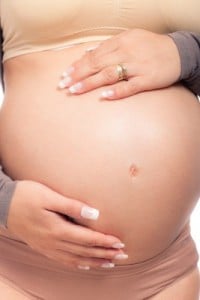
Previous studies have led health care professionals to the conclusion that an ectopic pregnancy increases the risk of subsequent ones. However, all studies up to this point have been small and only over a short period of time. A new study, led by Dr. Line Lund Karhus, M.D., took a deeper, longer look at the effect of an ectopic pregnancy on women; more specifically, women whose first pregnancy was ectopic.
“We found no controlled study assessing long-term reproductive prognosis in women whose first pregnancy is ectopic,” wrote Karhus, a research student in the Gynecological Clinic at the Rigshospitalet in Copenhagen, Denmark, and his colleagues.
For their study, researchers collected data from 1977 to 2009. The data, which came from four different Danish registries, found a total of 2,917 women whose first pregnancy wad ectopic between 1977 and 1982. Those that had died or immigrated were excluded and all of the women included in the study had been followed until 2009 or for a total of 23 years. Researchers then matched those women with same-aged women whose first pregnancy had resulted in a miscarriage, abortion or delivery. Researchers also added in a fourth group of women who had not had a pregnancy in the year of matching.
From this data, researchers found the number of subsequent deliveries in women who’d had an ectopic pregnancy first to be 45% lower than women whose first pregnancy was a miscarriage. When compared to women whose first pregnancy resulted in a delivery, however, the difference was much smaller – just 5%. This ends up equaling about one less child.
“It is not surprising that there was little difference between the women who had an ectopic pregnancy and women who delivered a baby from their first pregnancy,” said Dr. Karhus. “We think someone with a first ectopic pregnancy have to try harder to achieve the number of deliveries they wish. However, their attempts are counterbalanced by the fact that they are less fertile, and, therefore, ultimately they end up with one less birth.”
When then compared to women whose first pregnancy ended in abortion, researchers found that the number of subsequent deliveries among women with ectopic pregnancies was about 11% lower. When compared to the group of women who had not had a pregnancy, women with ectopic pregnancy had 31% fewer subsequent deliveries.
“These results indicate that fertility is comprised in women whose first pregnancy is ectopic and even after 30 years they have significantly fewer children compared with other women,” said Karhus. “We had expected that, over time, women would compensate for their reduced fertility by making more attempts to become pregnant. However, our results demonstrate that these extra attempts at pregnancy do not result in the same number of babies for women whose first pregnancy was ectopic compared with other women.”
In addition, researchers found that women in the ectopic group were less likely to have a subsequent miscarriage or induced abortion when compared with women whose first pregnancy ended in miscarriage – 54% and 28%, respectively.
The team is now trying to determine if the advancement of assisted reproductive techniques have played a part in the improvement of long-term delivery rates for women with ectopic pregnancies.
Related Articles:
- Elevator Delivery of Bronx Baby “A Beautiful Experience”
- Higher Mercury Level From Eating Fish May Heighten Risk of ADHD in Unborn Babies
- Russian Mom Welcomes Baby Girl During In-Flight Delivery






